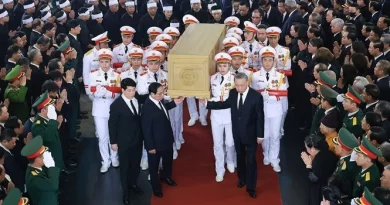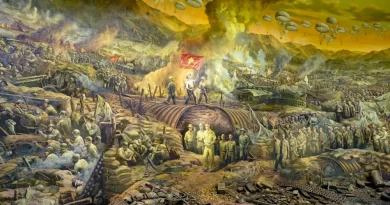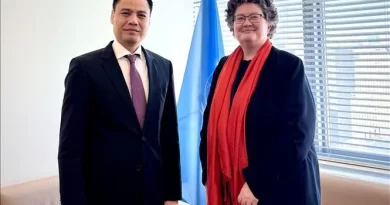Foreign Diplomats Praise Late Party Chief’s Role in Vietnam’s Modern History
Party General Secretary Nguyen Phu Trong has been pivotal in Vietnam’s development and achievements, both domestically and internationally, according to foreign diplomats who previously worked in the country.
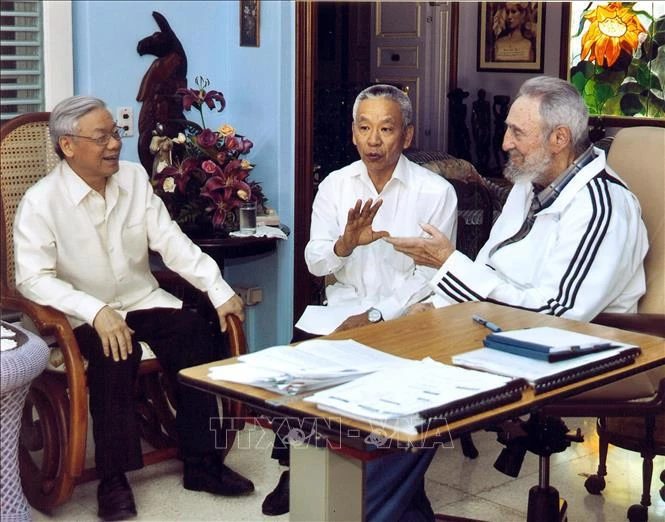
Former Cuban Ambassador to Vietnam Fredesman Turro Gonzalez expressed his deep sadness at Trong’s passing, highlighting the loss felt among international friends, particularly in Cuba. Speaking to the Vietnam News Agency (VNA), Fredesman described Trong as a great friend of Cuba, noting his five visits to the Caribbean nation in various capacities.
Trong maintained personal relationships with key Cuban leaders, was well-versed in the country’s situation, and worked to foster positive sentiments among the Vietnamese people, especially the youth, towards Cuba. He also promoted economic and trade ties and the sharing of experiences in economic development and political affairs between the two Parties, particularly in ideology.
Reflecting on his memories of Trong, Fredesman recounted numerous interactions with him, from his tenure as Editor-in-chief of the Communist Review to his roles as Secretary of the Hanoi Party Committee, National Assembly Chairman, and Party General Secretary. The former ambassador admired Trong for his simplicity, cordiality, sharpness, and firmness in principles.
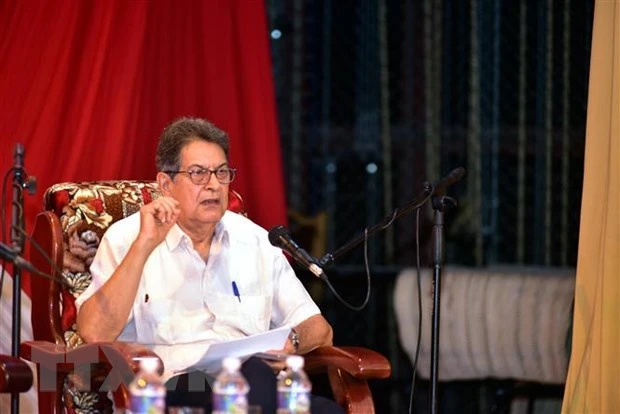
Under General Secretary Trong’s leadership, the Communist Party of Vietnam (CPV) has steered the country to significant socio-economic successes and set new goals for becoming a prosperous upper-middle-income nation. Trong was also recognized as an eminent scholar whose writings provided theoretical and practical insights into Vietnam’s reform process and its transition towards socialism.
Feda El Taify, Director of the Egyptian Public Libraries Fund and former Ambassador of Egypt to Vietnam, echoed these sentiments. He described Trong as an excellent leader who played a substantial role in Vietnam’s modern history. Under Trong’s leadership, Vietnam achieved notable progress in economic, social, and diplomatic spheres.
El Taify praised Trong’s critical role in enhancing Vietnam’s cooperation and friendship with countries worldwide, including Egypt, Arab nations, and many others. He acknowledged the significant economic breakthroughs and the global reach of Vietnamese goods, attributing these successes to the strength of the Vietnamese people and their economic development.
In external relations, El Taify highlighted Vietnam’s “bamboo diplomacy,” characterized by independence, self-reliance, and flexibility, which has positioned the country as a vital member of the international community and a crucial economic and diplomatic partner globally. He expressed confidence that Trong’s successors would continue to uphold his vision for Vietnam’s development.
John McCarthy, who served as Australia’s Ambassador to Vietnam from 1981 to 1983, noted Vietnam’s smart and flexible foreign policy under Trong’s leadership, emphasizing strategic independence and self-reliance. He remarked that Vietnam had risen to a top position among Australia’s Asian relations, culminating in the recent upgrade of bilateral ties to a comprehensive strategic partnership.
Having witnessed Vietnam’s transformation from a war-torn nation to a competitive regional economy since the 1980s, McCarthy expressed admiration for the country’s progress.
Susan Boyd, another former Australian Ambassador to Vietnam, recalled Vietnam’s “Doi moi” (Renewal) period when she served from 1994 to 1998. She noted that under General Secretary Trong’s leadership, Vietnam had expanded its relations in multiple areas, including politics, diplomacy, education, and the arts. According to Boyd, Vietnam has leveraged its rapidly growing economy and broader political ties to improve the well-being of its people.
